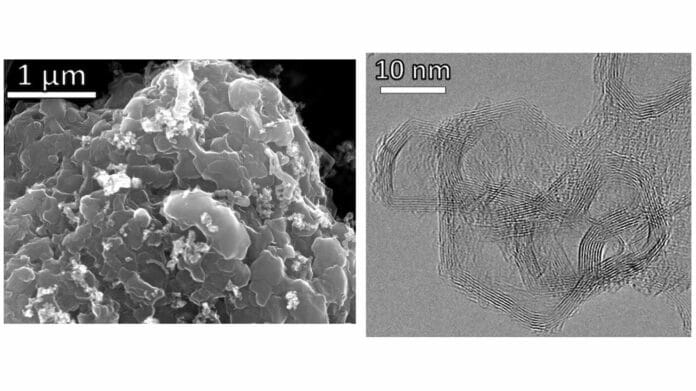The main storable fuel for producing clean energy is hydrogen gas (H2), used in over 90 million tonnes of annual global energy production. Through the metal-catalyzed steam methane reforming process, which generates 11 tonnes of CO2 for every tonne of H2, more than 95% of H2 is created. “Green H2” produced by water electrolysis with renewable energy emits no CO2, but it is now economically unviable due to its higher cost.
Rice University researchers have found a way to harvest hydrogen from plastic waste using a low-emissions method that could more than pay for itself.
Scientists converted waste plastics⎯ , including mixed waste plastics, that don’t have to be sorted by type or washed⎯ into high-yield hydrogen gas and high-value graphene. Clean hydrogen might be generated for free if the manufactured graphene is sold for only 5% of its present market value, which is a 95% discount.
For around four seconds, the scientists heated samples of plastic garbage to 3100 degrees Kelvin using rapid flash Joule heating. The procedure turns the hydrogen in polymers into vapor, leaving behind graphene, a single layer of carbon atoms that is incredibly light and strong.
Kevin Wyss, a Rice doctoral alumnus, and lead author, said, “When we first discovered flash Joule heating and applied it to upcycle waste plastic into graphene, we observed a lot of volatile gases being produced and shooting out of the reactor. We wondered what they were, suspecting a mix of small hydrocarbons and hydrogen, but lacked the instrumentation to study their exact composition.”
“We know that polyethylene, for example, is made of 86% carbon and 14% hydrogen, and we demonstrated that we can recover up to 68% of that atomic hydrogen as a gas with a 94% purity. Developing the methods and expertise to characterize and quantify all the gases, including hydrogen, produced by this method was a difficult but rewarding process for me.”
“I am glad that the techniques I learned and used in this work. Specifically, life-cycle assessment and gas chromatography ⎯ can be applied to other projects in our group. I hope this work will allow clean hydrogen production from waste plastics, possibly solving major environmental problems like plastic pollution and the greenhouse gas-intensive hydrogen production by steam-methane reforming.”
Journal Reference:
- Kevin M. Wyss, Karla J. Silva, Ksenia V. Bets et al. Synthesis of Clean Hydrogen Gas from Waste Plastic at Zero Net Cost. Advanced Materials. DOI: 10.1002/adma.202306763
